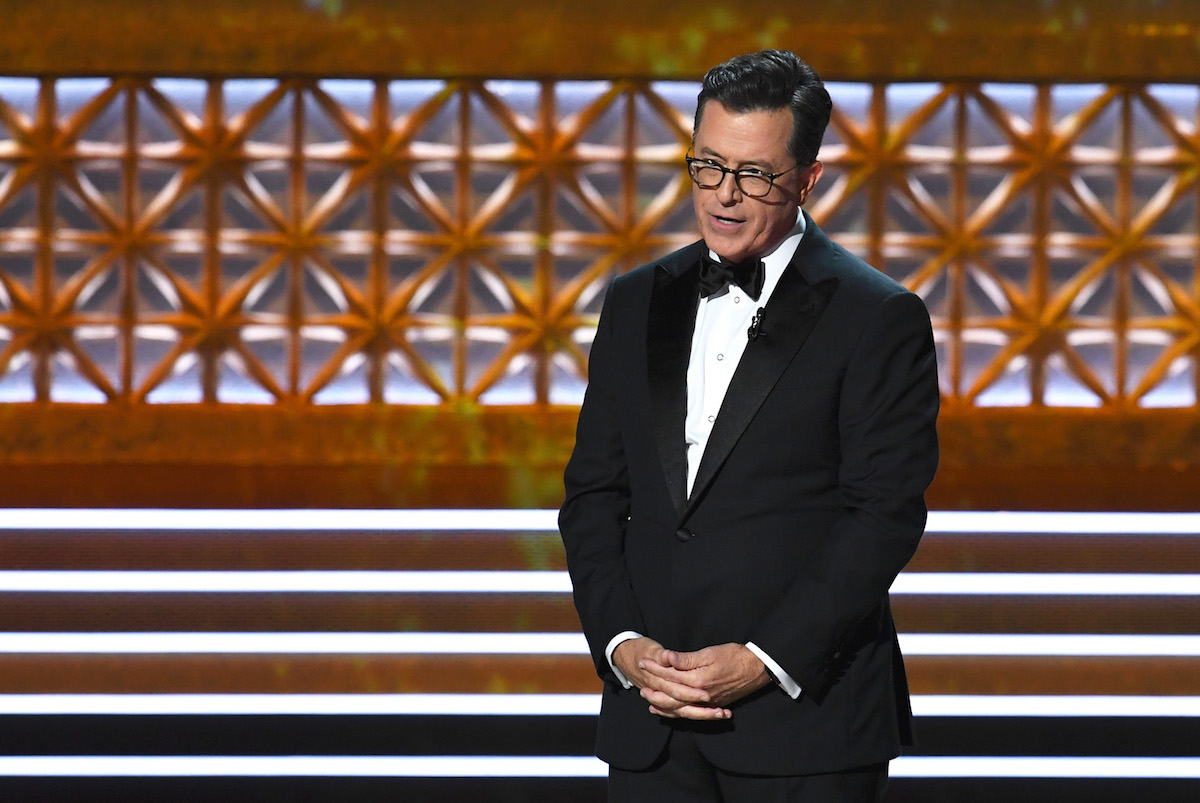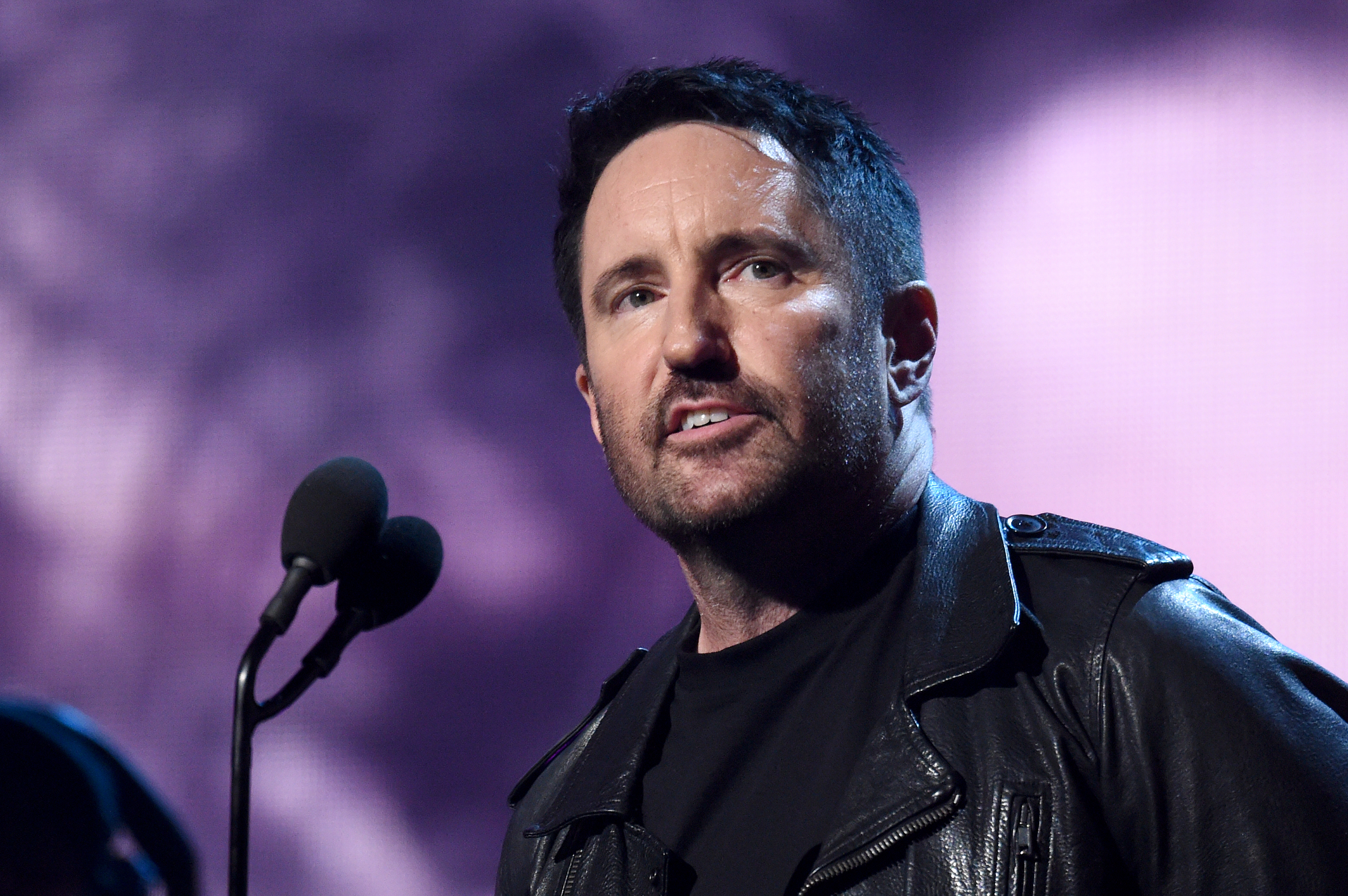Some good stuff happened at the Emmys on Sunday night. Donald Glover won awards for his acting in and directing of Atlanta. Lena Waithe won for her wonderful Master of None episode, and Riz Ahmed for his starring role in The Night Of. These things were fun to see because each represented a small breaking of ground regarding who on this Earth gets to own Emmys trophies, and also because each of those winners were the most deserving nominees in their respective categories.
But these were rare moments that went down easy during a show that should have left you with a foul taste in your mouth. This started immediately, of course, when Stephen Colbert rolled Sean Spicer out onstage to make a very obvious joke about how he was a paid liar for a tyrannical presidential administration. The blowback was immediate, and justified, given that the moment was merely a surface-level stunt that worked only to welcome Spicer, who should be ridiculed constantly in public, back into polite society, with other Trump White House flunkies surely following in his wake.
Worse even than that was the inclusion of Roger Ailes in the night’s In Memoriam segment, an utterly baffling decision that would, in a just world, lead to the blackballing of every one of the show’s decision makers. Ailes, it almost goes without saying, is one of the most vile and destructive figures in recent American history, a man who purposefully poisoned our politics by using lies to brainwash the electorate. On a personal level, he was an utter monster who sexually harassed a number of his subordinates during an unchecked multi-decade reign of terror at Fox News. Somehow, the Emmys avoided making the easiest choice ever, which would have been to ignore him entirely.
Hollywood has been a collective, and effective, conservative pariah for over a decade now, and this will not change with Trump being thrust into the White House thanks to a wave of anti-elitism. But for as alienated as conservatives believe themselves to be from mainstream entertainment, the Emmys proved that it is instead Hollywood’s theoretical allies—liberals and progressives—who should, after being confronted by the politics implied by the biggest night in television, look at celebrities as an alien life form. What else is there to wonder except for what side these people, who can laugh with Sean Spicer and wipe a tear for Roger Ailes, are really on?
Hollywood itself would point out those wins by Glover, Waithe, and Ahmed as signs of progress and resistance, but realistically the handing out of trophies at awards shows only has so much meaning. If anything, the centering of Spicer and the honoring of Ailes highlighted why people like Glover and Waithe are forced to be considered pioneers in 2017: When you welcome white nationalist propagandists into your midst, it’s no wonder that your supposed progress (awarding non-white people for their art) is so incrementally and painfully slow.
They might also point to Chance the Rapper’s interlude within Stephen Colbert’s opening number, in which Chance was presented as a dissenting opinion to Colbert’s cloying and tone-deaf pean to the escapist power of television. Chance wondered aloud about police procedurals where cops are the convicted and why Laverne Cox couldn’t be the star of a mainstream sitcom, but instead of subversion this felt like Colbert quickly ticking a box, a way of proactively protecting himself against criticism of his opening thesis, which was, in the words of his song: “So, friends, I know the world may be the worst we’ve ever seen / But it’s never been better on your TV screen.” Good lord. (And this is to say nothing of Chance ending his otherwise agreeable verse with pablum about turning off your TV and going protesting.)
Hollywood would also surely argue that the show had an anti-Trump streak. But Colbert, hailed as having saved his late night show by pointedly criticizing the president, presented an utterly defanged version of himself at the Emmys, telling a few lame and listless jokes about Trump before ceding the stage to Spicer. Colbert himself acknowledged how obligatory the whole thing felt when, after making a crack about the popular vote, he asked, “Where do I find the courage to tell that joke in this room?”
Jane Fonda, while presenting an award, hit Trump the hardest, calling him “a sexist, egotistical, lying, hypocritical bigot.” Given the context of the show it was said during, her criticism acted more like a rebuke of its surroundings than of the intended subject himself. Glover, in accepting his award for best actor in a comedy series, went a step further by explicitly confronting the room by thanking Trump for “making black people number one on the most oppressed list” because it was “the reason I’m probably up here.” It seemed to go over the audience’s head.
After the show ended, Spicer was reportedly mobbed at an afterparty by actors looking for photos. Alec Baldwin—supposedly an important outspoken liberal who, as a man tasked with delivering television’s most visible unflattering portrayal of the president, is allegedly the tip of the resistance spear—gave Spicer a pass for routinely lying to the American public about the most vulnerable and unprotected among us. None of the attendees seemed to care that Roger Ailes was inducted into Hollywood’s fond and warm collective memory. In a recent New York magazine profile of Michael Moore, writer Jessica Pressler noted that Moore was jeered at the Oscars in 2003 for saying that George W. Bush stole the 2000 election and was leading us into the Iraq War under false pretenses. It’s been 15 years since then—these people have learned nothing.





